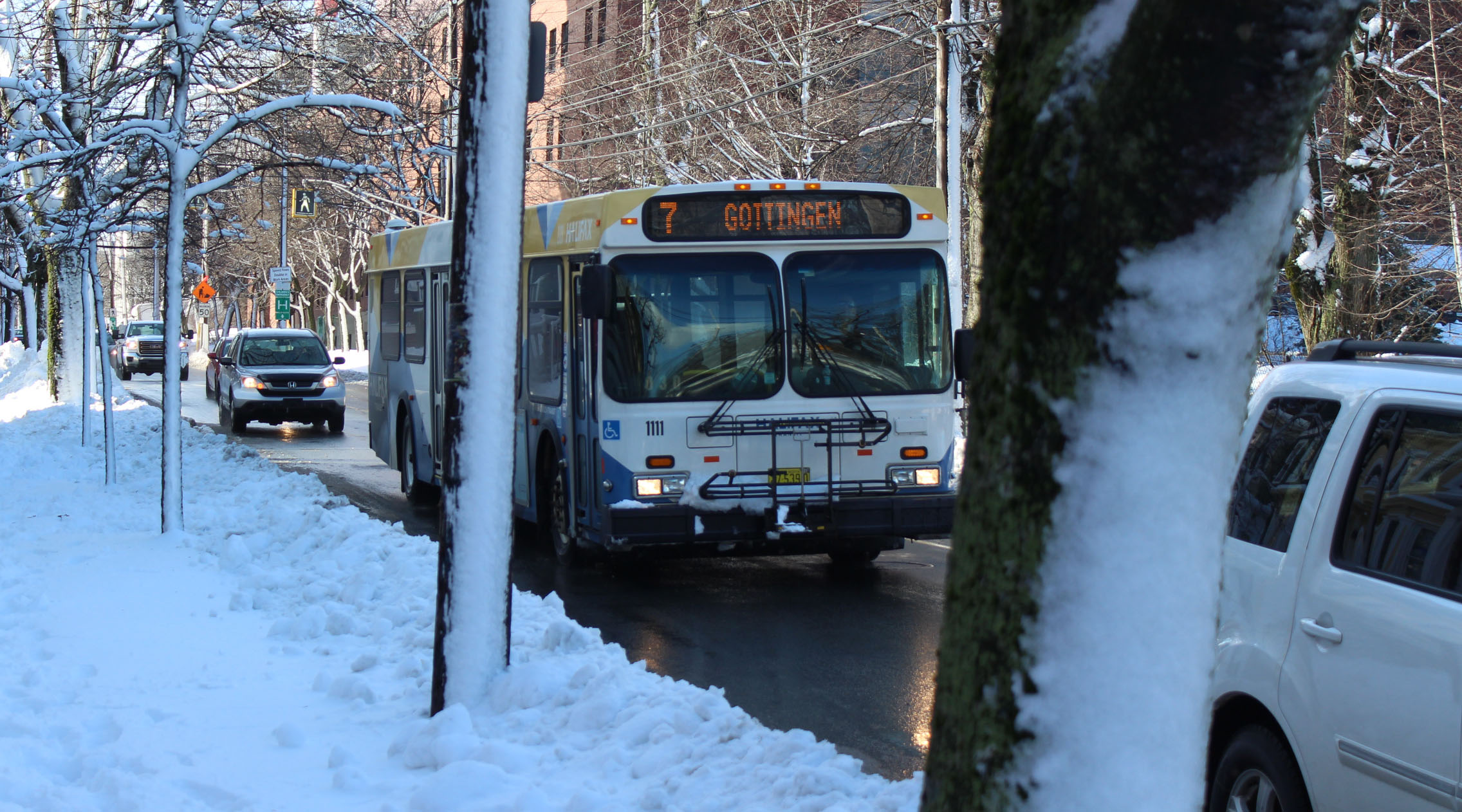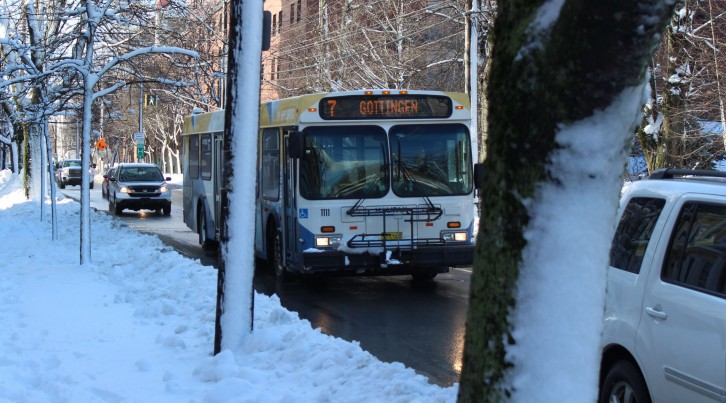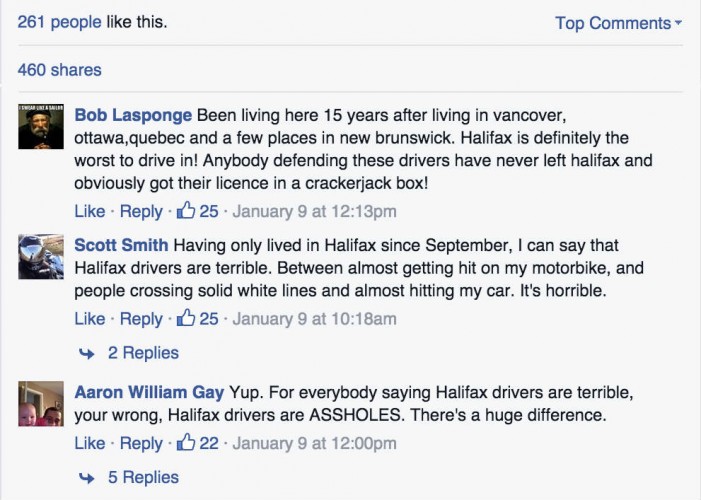Halifax home to the most dangerous drivers? Maybe not
Social media posts regarding a recent study about Halifax drivers might reveal more than the study itself.

caption
Halifax drivers, doing just fine.
caption
Halifax drivers, doing just fine.Despite what you might have seen, Halifax drivers are likely not the most dangerous in the country.
A recent news report titled “Halifax most dangerous Canadian city to drive in: study” amassed hundreds of shares and comments on social media.

caption
Actually Aaron, it’s “you’re wrong.”The study cited in the news report is the Safe Driving Study conducted by the insurance company, Allstate Canada.
However the study doesn’t look at actual collisions, just claims for collisions. And those are only claims concerning Allstate customers. And the only provinces included in the study were Alberta, New Brunswick, Nova Scotia and Ontario.
Kevin Wilson, a representative for Allstate Insurance, said that their Safe Driving Study was, “more of an anecdotal study” intended to encourage conversations about safe driving practices.
A look at the study’s data table shows that the collision rate in Ajax, Ont., was identical to Halifax’s. But because they were tied, the cities were listed alphabetically and Halifax appeared in the lowest position.

The study might not prove Halifax drivers are Canada’s worst, but according to academics, whether it’s true or not, people would believe it.
Dalhousie psychology professor John Christie says a combination of two common mental mistakes are at work here.
The first is the availability heuristic, which is our tendency to base judgements on obvious examples that spring to mind.
Christie explained, “if you’re driving home and someone cuts you off, […] you notice that and you remember it. And you feel that was an unsafe drive home, despite the fact that 99 per cent of the drivers didn’t cut you off.”
Rather than recalling the norm, “it’s the unique things that stand out,” says Christie.
Dalhousie professor Raymond Klein says the media contributes to our faulty thinking, “because crashes, disasters, etc. are newsworthy and the absence of such events is not.”
The second mental pitfall here, is confirmation bias, which is the habit people have of noticing information that supports their beliefs and ignoring information that conflicts with it.
Klein says it’s a feature of human nature that “we tend to want to see our ideas confirmed.”
“Having the place where you normally drive every day come out at the bottom of a list for [safe] driving is something most people will agree to,” says Christie.
He speculates that, “It pretty much wouldn’t matter what city you made the story about, it would’ve drawn the same reaction.”
Christie also points out that in comments that agreed with the news report, people criticized other Halifax drivers, but not one of them said, “yeah, I can believe that, I’m a terrible driver.”

